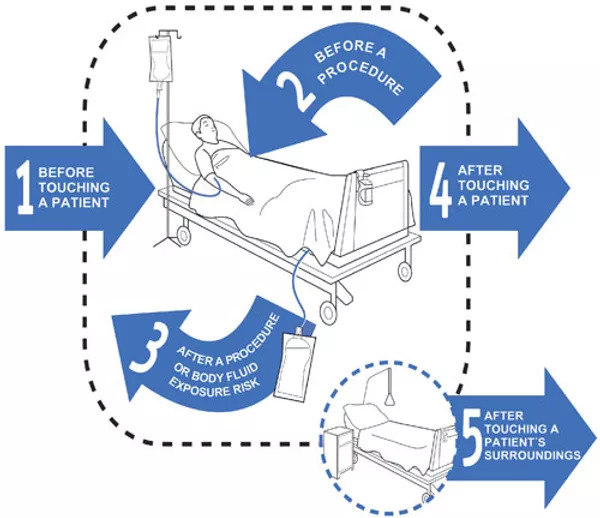
Hospital-acquired infection, also known as a HAI or in medical literature as a nosocomial infection, is an infection whose development is favoured by a hospital environment, such as one acquired by a patient during a hospital visit or one developing among hospital staff.
Such infections include fungal and bacterial infections and are aggravated by the reduced resistance of individual patients. Hospital-acquired infections can be caused by bacteria, viruses, fungi, or parasites.
These microorganisms may already be present in the patient’s body or may come from the environment, contaminated hospital equipment, healthcare workers, or other patients.
Depending on the causal agents involved, an infection may start in any part of the body. A localised infection is limited to a specific part of the body and has local symptoms.
For example, if a surgical wound in the abdomen becomes infected, the area of the wound becomes red, hot, and painful. A generalised infection is one that enters the bloodstream and causes general systemic symptoms such as fever, chills, low blood pressure, or mental confusion.
Hospital-acquired infections may develop from surgical procedures, catheters placed in the urinary tract or blood vessels, or from material from the nose or mouth that is inhaled into the lungs.
The most common types of hospital-acquired infections are urinary tract infections (UTIs), pneumonia and surgical wound infections.
MTHCS has developed an extensive infection control program to prevent nosocomial infections. This program focuses on identifying high risk procedures and other possible sources of infection.
High risk procedures such as urinary catheterisation should be performed only when necessary and catheters should be left in for as little time as possible.
Medical instruments and equipment are properly sterilised to ensure they are not contaminated. The Hand Hygiene Program encourages frequent hand washing by staff and visitors to avoid passing infectious microorganisms to hospitalised patients.
The 5 moments of hand hygiene at Mallee Track Health and Community Service are as follows:

Your feedback about this content is important and helps us improve our service.
Please provided your email address if you would you like us to respond to your feedback.

